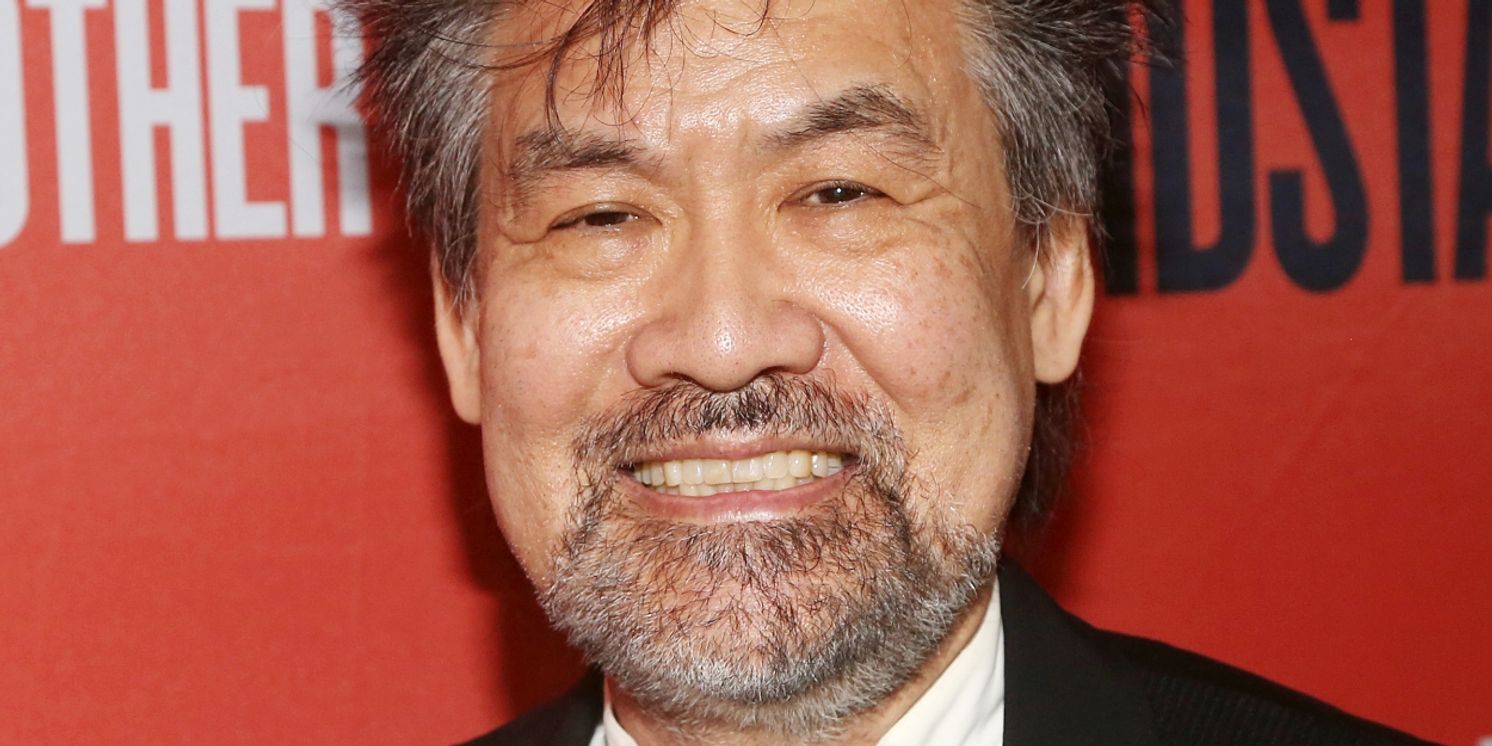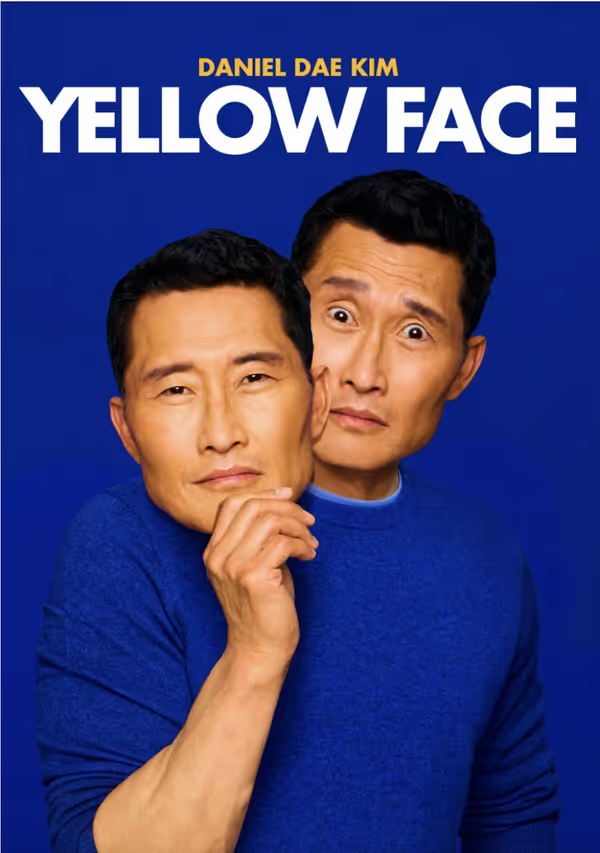Interview: David Henry Hwang Discusses YELLOW FACE Audible Drama Ahead of Play's Broadway Debut
The Audible adaptation of Hwang's play is available now.

It’s a big year for Yellow Face, the 2007 play by David Henry Hwang.
At the beginning of May, a brand new audio version of Yellow Face debuted on Audible, which features a starry cast that includes Daniel Dae Kim, Benedict Wong, Ashley Park, Jane Krakoswki, and many more stars across the stage and screen.
In October, the play will make its Broadway debut at the Todd Haimes Theatre, also with Daniel Dae Kim and again directed by Leigh Silverman, who helmed the original Off-Broadway production and the Audible drama.
Yellow Face, which was a finalist for the Pulitzer Prize in 2008, sees a fictionalized version of Hwang as navigates the difficult worlds of media and politics as an Asian-American playwright in the 1990s and 2000s.
BroadwayWorld sat down with Hwang to discuss this new way of experiencing his play, how he approached the material 17 years later, and Audible's part in bringing the Broadway production to life.
As I was listening along with the original script, I was thinking about how well this play lends itself to this format. How did this Audible production come to be?
It has a lot to do with a combination of Daniel Dae Kim and Leigh Silverman, the director. Daniel’s company 3AD has a deal with Audible and they, in combination with Leigh, decided that this would be a great way to kick off their partnership. It's wonderful to have the opportunity to work with Audible and to give this play a different kind of life. The play has about 50 characters and is normally played by a company with six or seven actors, switching locations really quickly. The idea of doing it as an audio play felt like a good expression of the way the drama is told.
You have adapted your own work across mediums before. I’m thinking specifically of the M. Butterfly film. How did you approach adapting Yellow Face for this particular production?
[The play] is pretty much the same. The things that got changed had to do with the Marcus character in China. The original play has four or five different instances of monologues, but in this version, they're just the bookends. There's one at the beginning and one at the end. Other than that, it was mostly just tweaks. In the original play, I saw Marcus's journey to spend time with the minority tribe, the Dong in China, as a kind of utopia. Even when we did the original production, that started to feel naive. And in the intervening years, it's become even more clear that China does not actually have a very good record of dealing with its minorities.
When this play was originally done in 2007, I maybe felt more hopeful about multiculturalism and America moving forward, when it comes to issues of race and inclusion. Given everything that's happened in the intervening years the amount of division and polarization and the rise of the extreme right-wing in this country, I felt like the script felt a little naive. So to leave the Dong story in, but as more of a frame as opposed to delving into it with more granularity felt like the better choice right now.
This production offered a really unique opportunity to feature the involvement of some of the real-life figures that appear in the play. Jane Krakowski, Frank Rich, Dick Cavett. Can you talk about how they became involved?
It's so much fun that we can have cameos from a lot of the real individuals in this audio play. I have to give props to Audible for wanting to do this story in a large way and reaching out to a lot of the real-life people, and so many of them agreed. I was particularly delighted and somewhat surprised that Dick Cavett agreed as well as so many of the other wonderful people: Margaret Cho and Jane Krakowski. And then to have Lisa Ling reading some of the actual newspaper articles as well as Ronan Farrow. It's just delightful.
What was your involvement, if any, in the recording sessions with the cast?
The first thing we did was just do as much of a table read as we could. Certain people like Benedict Wong and Ashley Park weren't able to be there in person, but they were on Zoom and the rest of us did it around the table. It was a galvanizing process and also encouraged us to see that the script is maybe funnier now than it was in 2008 because the issues that are at the center of it are so much better known by a wide audience. Issues of representation are pretty commonly discussed right now, as opposed to 2008. There was still somewhat of a more esoteric concern. And then I was able to be there at the studio for a lot of the recordings and could both enjoy the recordings and also give notes when I had something to add. I was given the opportunity to review a lot of the different assemblies of different drafts of the whole thing, particularly when it came to adding things like underscoring and sound effects. I felt, as always, that I had a good collaboration with my director, Leigh Silverman.
This is part of Audible’s new initiative to record theater productions for the platform. What role do you think audio adaptations play in making theater more accessible and reaching new audiences?
I think there's a great artistic tradition of, what used to be called, radio dramas. Certainly, BBC radio dramas are classic and involve [things like] early Harold Pinter. For me, audio plays are the natural outgrowth or the next iteration of that tradition. As it applies to today, it is not possible for a lot of people to actually come and see these plays live. And so certainly the audio play format allows a work to be enjoyed by people around the world. Also, I think the two forms complement each other. I remember in the early 2000s' when Prince, the pop musician, started giving away CDs. I think he recognized [this concept] early on and saw the future of how recorded media and live performance can complement and feed each other. I feel the same way about the audio play format.
The Broadway debut of the play is happening later this year, also with Daniel Dae Kim and again directed by Leigh Silverman. How has working on the Audible adaptation influenced or prepared you for the upcoming Broadway production?
I have to give a lot of credit to Audible for the Broadway production happening at all. I talked earlier about sitting around that table and doing a table read and thinking “Oh, this feels even more timely and funnier than it did in its original iteration.” That was when the idea of bringing the show back to Broadway came into focus in a serious way. Of course, for many years I'd been hoping there'd be a way to get this play to Broadway, but the audio production really galvanized this effort to get it to Broadway, and now that's what we're doing.
Check out the Audible drama below:
Photo Credit: Bruce Glikas

|
Powered by
|
Videos


